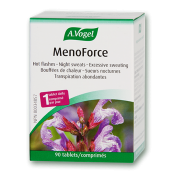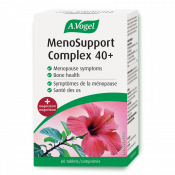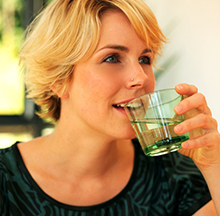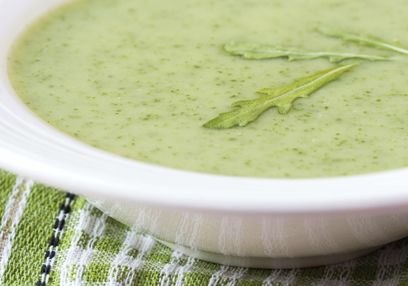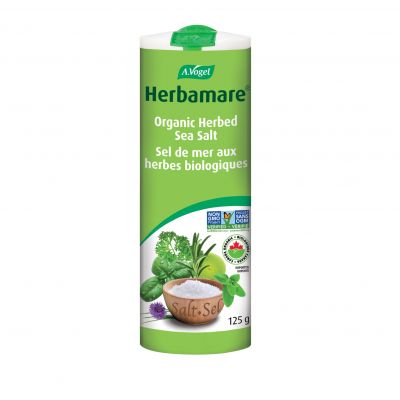My tips for coping with hot flashes and night sweats this summer
According to studies, around two-thirds of menopausal women suffer from hot flashes associated with sweating. Such an attack always follows the same pattern: The heart beats faster and suddenly a hot wave shoots from the neck into the head and the whole body. Shortly afterwards, you break out in a sweat. Then you start to shiver slightly - and it's all over again.
Frequency of episodes varies
The frequency of these episodes varies greatly from woman to woman. Some experience only one sweat attack a day, but many experience 30 or more. This is particularly stressful at night because the women almost always wake up. Many can't just go back to sleep either as they must change clothes first and sometimes even change the bed linen. This severely disturbs sleep and especially the dream phases that are so important for recovery. The quality of life decreases significantly because those affected are no longer rested and able to perform during the day. Since the condition often lasts for a long time, the women then also become increasingly nervous and irritable.
The earlier sweats occur, the longer they stay
Hot flashes and the associated sweats occur for the first time in most women right at the beginning of menopause. For many, they show up even before the last menstrual period. Over time, the frequency and severity of the attacks usually decrease slowly, but there are exceptions.
However, the period of time over which a woman must expect to sweat excessively again and again without external cause varies greatly from person to person. Some women are only affected for a few weeks, others struggle with it for years. A new US study shows that in some cases the sweating can last for as long as ten years. The researchers discovered a rule of thumb: The earlier the hot flashes occur during the menopause, the longer a woman has to struggle with them.
Hormones are the reason
Experts believe that the hot flashes and sweats are caused by the fluctuating oestrogen level at the beginning of menopause, which later decreases more and more.
However, it is still unclear why a third of women are not affected by this - although the oestrogen levels in their blood also change significantly. But what is known is what happens in the body: The changes in hormone levels irritate the temperature centre in the brain. The body misunderstands these signals and "thinks" it is suddenly overheated. To counteract this, the stress hormone adrenaline is released, the heart beats faster, the blood vessels in the skin dilate and you sweat. This causes the body to cool down again.
In the case of a hot flash, therefore, exactly what makes sense when the organism overheats happens - only that in this case it never happened.
Herbal medicine also has some remedies that help against the "flying heat".
Soy is rich in plant estrogens called isoflavones. The isoflavones in soy have historically helped women to mitigate the impacts of declining estrogen including hot flashes, bone degeneration, menstrual migraines, mood swings, and other difficult menopausal symptoms.
MenoSupport Complex, is a combination product consisting of magnesium, hibiscus, and soy. It has been on the market in the UK for over 8 years with a strong following due to its resounding success in helping women across the country reduce their menopausal symptoms.
Sage (Salvia officinalis) is known mainly for its aromatic qualities in cooking, but it is also rich in essential oils with medicinal properties. Sage's clinically proven estrogenic properties reduce the frequency and intensity of hot flashes and night sweats and help to restore hormonal balance after only a few weeks of use. A.Vogel MenoForce offers specially dosed sage extract tablets. In fact, each tablet contains 3400 mg of organically grown fresh sage (Salvia officinalis) tincture. Just one tablet a day helps control hot flashes in women during menopause and even perimenopause.
Exercise alleviates the symptoms
Anything that strengthens the circulation and exercises the blood vessels can help women. Why? The temperature regulator in the brain is then no longer so easily thrown out of balance, the sweats subsequently occur less frequently and less severely or sometimes even do not occur at all. An important building block here is regular exercise. You should really work up a sweat. Endurance sports such as walking, cycling or jogging are recommended. However, if you haven't done much exercise so far, you should take it slowly and not overexert yourself.
Kneipp treatments such as treading water are also a good workout for the vessels. To do this, fill a tub with cold water. It should reach a hand's breadth below the knees. Now wade in it like a stork for about a minute, pulling one foot completely out of the water at each step, with the tip of the foot pointing downwards. Always stop immediately if a strong cold stimulus occurs. Afterwards, just wipe off the water and warm up the feet again by walking around. If you like, you can also put on woollen socks. Sauna visits followed by a cold immersion bath or alternating showers have a similar effect on the organism.
When it comes to nutrition, women should now focus on Mediterranean cuisine. The diet includes lots of fresh fruit and vegetables, fresh herbs, good vegetable oils and two fish meals a week. Reduce the consumption of red meat, animal fat, white flour products and sweets. Together with regular physical activity, this diet can also reduce existing excess weight - another factor that promotes hot flashes and sweating. It is also important to drink plenty of fluids, preferably mineral water. Alcohol, coffee and black tea, on the other hand, should be avoided as much as possible, because all three have an effect on the oestrogen level and can directly trigger a sweating attack.
Using the power of nature
Lady's mantle tea has a balancing effect on hormones. For this, two to three teaspoons of herb are brewed with 250 ml of water. Leave to infuse for ten to 15 minutes and strain. Drink three to four cups of it daily. Red clover contains so-called isoflavones. These secondary plant substances are similar to oestrogens in their chemical structure and therefore also have a stabilising effect on hormone levels. Some studies provide evidence that taking red clover supplements has a positive effect, especially on hot flashes. The seeds of the pomegranate also contain such plant oestrogens. In studies, the effect of pomegranate seed oil on hot flashes and sweating was small. But the majority of the women who participated reported better sleep.
If hot flashes and night sweats are your most prominent issue, Sage should be your go to. Here, you have two options, tea or tablets. Both have an antiperspirant effect and is also calming. For the tea preparation, pour 250 ml of boiling water over two teaspoons of dried sage leaves and let the mixture infuse for up to ten minutes, then strain. Brew a fresh cup twice a day and drink the tea unsweetened and room-warm. Sage acts directly on the heat regulation in the brain. A cup before going to bed is particularly good for night sweats


